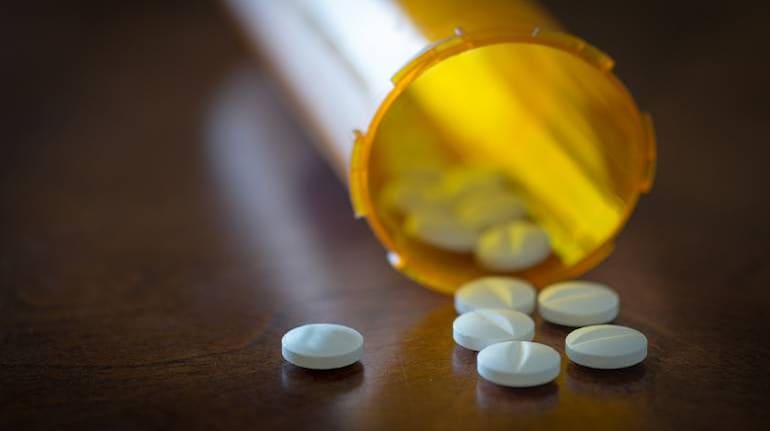



If there is one drug that has been most discussed globally in recent weeks, it is hydroxychloroquine.
US President Donald Trump on April 6 requested India to ease export restrictions on the anti-malarial drug hydroxychloroquine and paracetamol and warned of retaliation if India refused. The issue, as it seems, has the potential to become political as India needs the drug as well.
Latest on this story: COVID-19 | India to supply hydroxychloroquine, paracetamol to other badly-affected nations
On the contrary, the age-old inexpensive anti-malarial drug was almost forgotten by Western countries, but is still used widely in many countries in Asia, Africa and Latin America, which are endemic to malaria, has now made a huge comeback.
Chloroquine was first synthesized in the 1930s. Hydroxychloroquine, the less toxic version of chloroquine, has been in use since the 1950s.
Why its sudden popularity?A study by French researchers headed by Professor Didier Raoult of Institut Hospitalo-Universitaire (IHU), Marseilles on March 16 reported that after treating 24 patients for six days with hydroxychloroquine and the antibiotic azithromycin, the virus disappeared in all but a quarter of them. The research has not yet been peer-reviewed nor formally published in a medical journal. Many experts called the study too small and anecdotal.
But this tweet by US President Donald Trump calling hydroxychloroquine and azithromycin as the 'biggest game changer' in the history of medicine has brought the drug to the centre stage.
HYDROXYCHLOROQUINE & AZITHROMYCIN, taken together, have a real chance to be one of the biggest game changers in the history of medicine. The FDA has moved mountains - Thank You! Hopefully they will BOTH (H works better with A, International Journal of Antimicrobial Agents).....— Donald J. Trump (@realDonaldTrump) March 21, 2020
India too recommended hydroxychloroquine as prophylactic for its healthcare workers and high-risk individuals to prevent novel coronavirus, or COVID-19, infections. People have been running to pharmacy stores to stock up on hydroxychloroquine. With drug stores running out of Hydroxychloroquine, the government ensured the drug is only available on prescription and warned chemists of stringent action if the drug is sold without valid prescription.
Despite expert reservations on the drug's effectiveness and side-effects, the US Food & Drug Administration issued an Emergency Use Authorisation (EUA) to Biomedical Advanced Research and Development Authority (BARDA) to allow hydroxychloroquine sulfate and chloroquine phosphate products donated to the Strategic National Stockpile (SNS) to be distributed and prescribed by doctors to a hospitalised teen and adult patients with COVID-19, as appropriate, when a clinical trial is not available or feasible.
How effective and safe is hydroxychloroquine?To be sure to establish the effective is hydroxychloroquine, we need to test the drug against in a large randomised controlled clinical trial. This could take several months for results to be conclusive.
A second study by researchers from Shanghai University in China has cast doubts on effectiveness of hydroxychloroquine. The study published last week was done on 30 patients hospitalised for COVID-19.
The study couldn't find any significant difference between the patients who received hydroxychloroquine and those who got placebo or dummy pill.
Interestingly, the Chinese study though very small in sample size was random and controlled making it more reliable.
Also, previous studies of hydroxychloroquine have found the drug to cause heart damage and toxicity if taken in higher dosages.
Many experts told Moneycontrol that the French study is at best anecdotal, and needs much larger clinical trials on patients to test the effectiveness of the drug.
Trials are underwayDespite the contrarian views among experts. Hospitals in US have started adding hydroxychloroquine as part of their treatment protocols for COVID-19. Multiple clinical trials are underway in US, Australia, and other countries to establish whether the drug works or not.
To be sure, physicians are scrambling to treat COVID-19 patients in the absence of any approved drug or vaccine. Researchers are testing available drugs to see if they are any use against the disease.
As a goodwill gesture pharma companies have started donating hydroxychloroquine in large amounts to the government.
Follow our full coverage here
Discover the latest Business News, Sensex, and Nifty updates. Obtain Personal Finance insights, tax queries, and expert opinions on Moneycontrol or download the Moneycontrol App to stay updated!
Find the best of Al News in one place, specially curated for you every weekend.
Stay on top of the latest tech trends and biggest startup news.